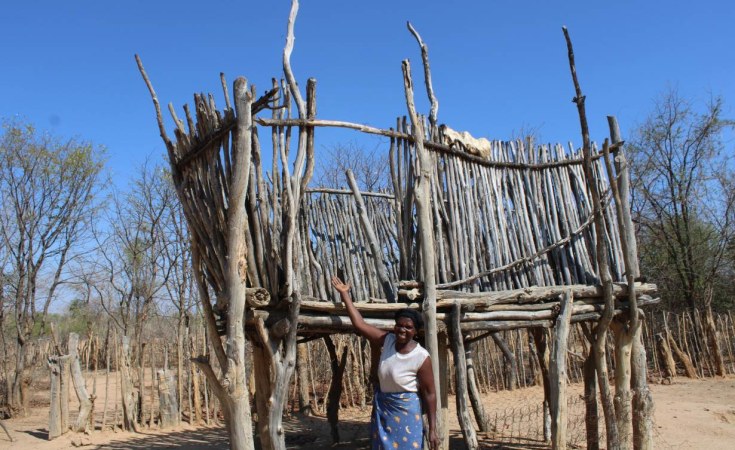Zimbabwe has suffered one of its worst droughts on record in the present summer season, with all three drought-related problems hitting: a late start to the season, little rain after the third week of January, and totals well below normal despite the heavy month of rain between mid-December and mid-January.
Because of the above-normal 2022-2023 season, most irrigation dams are nearly full.
The carry over supplies plus the fact that the bit of the season that did work produced a lot of run-off meant that dams, at least in the eastern and central parts of the country, have enough water for irrigation.
There are particular problems.
Bulawayo, for example, has had its perennial water problems worsened. The small dams that supply the city are inadequate at the best of times, and run-off has been falling for years even in decent seasons.
Water levels go very low between the end of one season and the start of the next, and a bad drought tends to reduce rainfall in Matabeleland South significantly.
But generally, farmers have enough irrigation water and a special effort is being made this winter to grow more grain, with an emphasis on wheat, probably for the simple reason that maize is not a great winter crop, even when there is water, so yields of irrigated maize are tricky.
The Government has put in the required measures.
There will be some deliveries to the Grain Marketing Board (GMB) and millers from the farmers who had supplementary irrigation, but it is highly unlikely there will be anything very much from the smallholders.
The best that anyone can hope for is that the natural region two smallholders will at least be able to feed themselves, but the rest of the maize crop, that in parts of region two and most of region three, will be nothing to write home apart unless the farmer had some irrigation capacity.
There will be the usual two main demands. First the Government is going to have to use a lot more maize, and traditional grains, to provide relief food to farming families that have produced nothing or far too little to last a year until the next harvest.
This drought-relief maize demand had been falling sharply with the upgrade in smallholder agriculture, it being better economically as well as cheaper to help effectively with inputs and modern farming methods than give out free food.
But this year the demand will be far higher. Already, the GMB carry-over stocks, what is called the strategic grain reserve, has been dedicated to relief food and the general expectation is that the Government will have to import quite a lot more maize, a minimum of 400 000 tonnes has been suggested, to maintain the relief supplies.
Then there is the private sector, the millers who produce the maize meal.
These have been buying GMB supplies, which they will not be able to do in the next year, but have under Government pressure been setting up contractual arrangements with the larger farmers, mainly the A2 farmers.
But they have also been told they will have to make their import arrangements to meet the gap between what they can expect from farmers and what they and the country need.
Mealie-meal demand is likely to rise. Urban families that used to get a bit from rural families will not be getting and in recent years the Government has been keener on monetary payments to the urban vulnerable, so they buy food, rather than dishing out bags of grain or meal.
There are potential problems with the millers importing. There will be a temptation to try and maximise foreign currency payments from retailers, and even to use the tuckshop network more than usual to ensure that.
And some may be tempted to push up profit margins using the excuse of imports.
Certainly, they are likely to be blamed for any shortages or price hikes, and it seems essential that all milling companies can justify, promptly, to both their customers and to the various State arms that they are behaving properly. So a good business move would be to behave properly and be willing to make public their financial statements.
A very high level of transparency seems to be required. Millers need to remember that they will have the same customers when there is a good season and need to treat those customers as adults and treat them fairly.
This does not mean prices may not rise, but it does mean that every percentage point of any rise needs to be explained and justified. It is likely that the Government will also be looking over their shoulders, so a high level of transparency will meet that auditing as well.
The intention to concentrate a lot of the winter harvest on wheat does make economic sense as well as coping with the different temperature demands of maize and wheat.
A wheat harvest of around 600 000 tonnes is planned, and with the carry-over stocks from last year that means there could be twice as much wheat available this year as normal demand requires.
Minister of Lands, Agriculture, Fisheries, Water and Rural Development Anxious Masuka has suggested three ways of using this huge wheat mountain: exporting excess stock and buying maize; direct swaps of wheat for maize; and encouraging Zimbabweans to modify their diets by eating more wheat in the grain mix.
The first two approaches are built around the fact that Zimbabwe does produce a wheat surplus, although this will only be the third year and the first year when that surplus is large.
Zimbabwe is the only country in Southern Africa that has even reached self-sufficiency in wheat, and the only African country besides Ethiopia that has done so. So there are obvious export markets.


